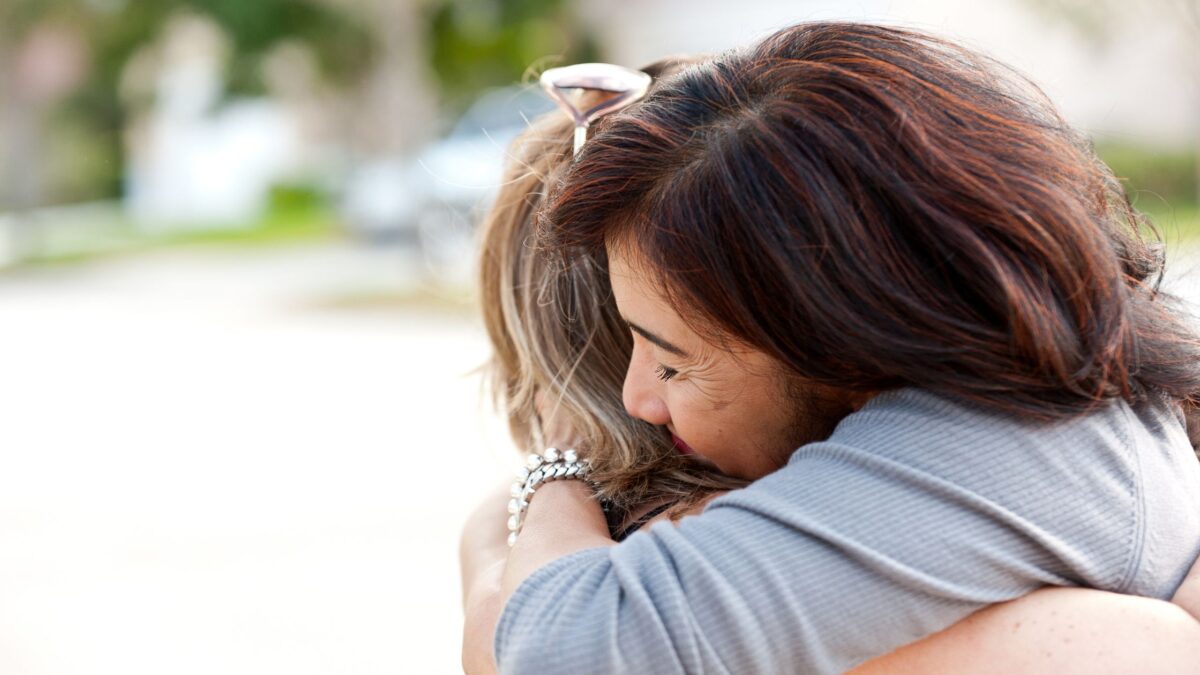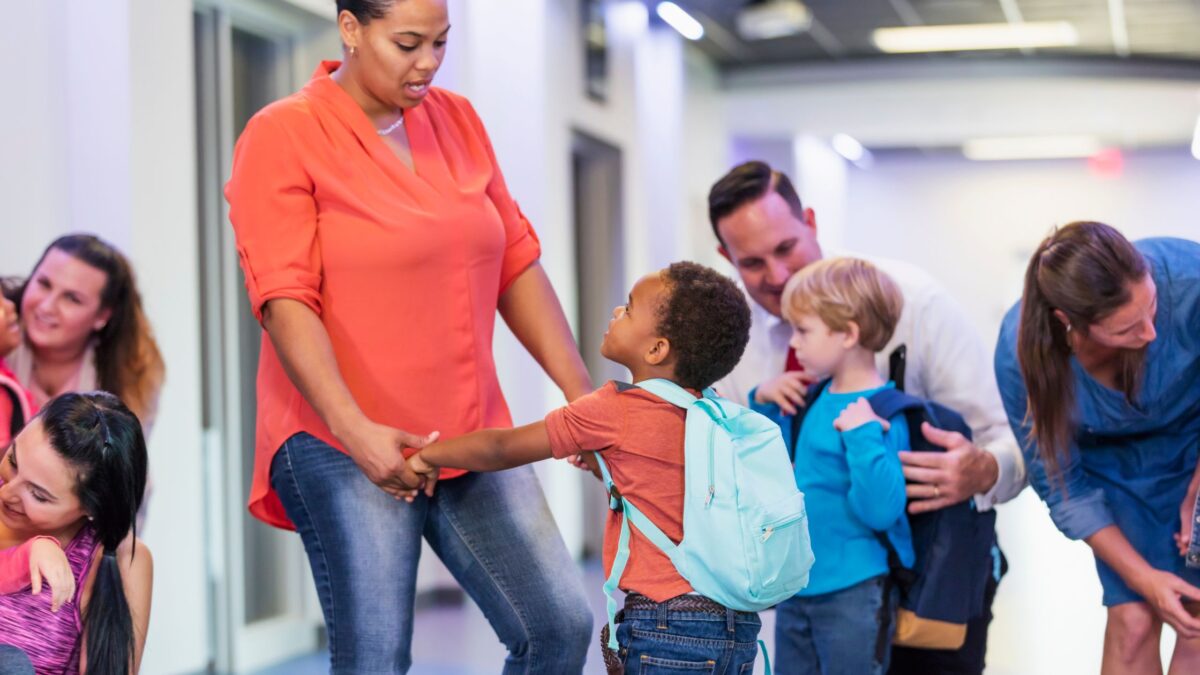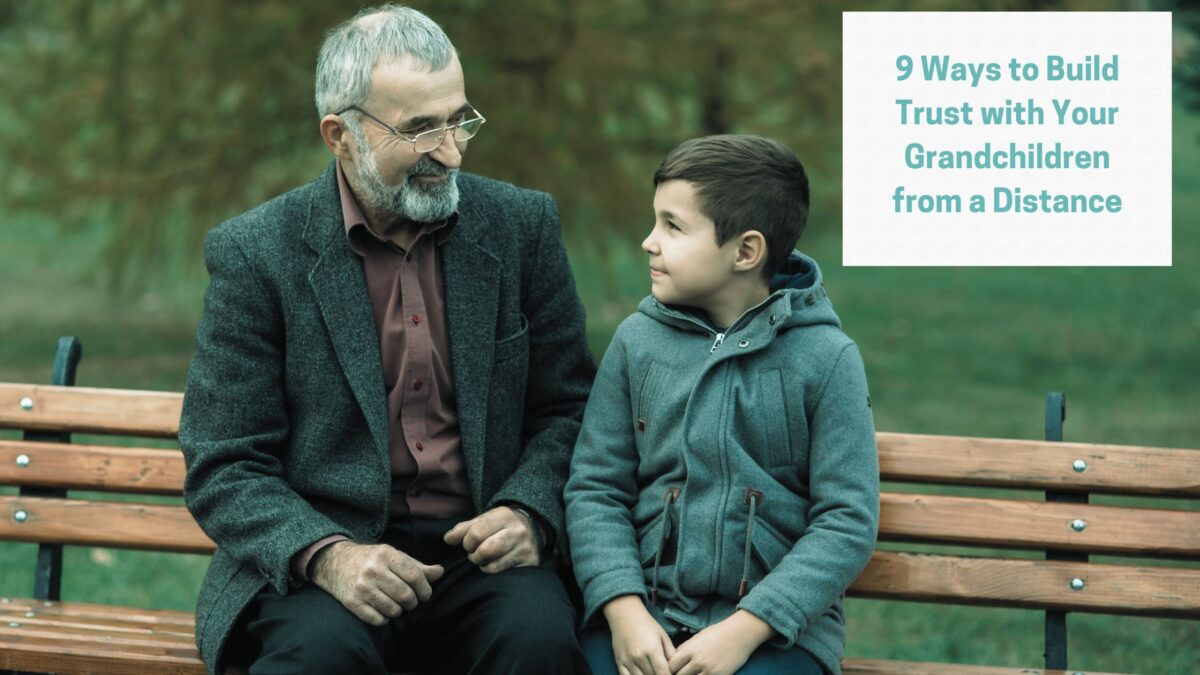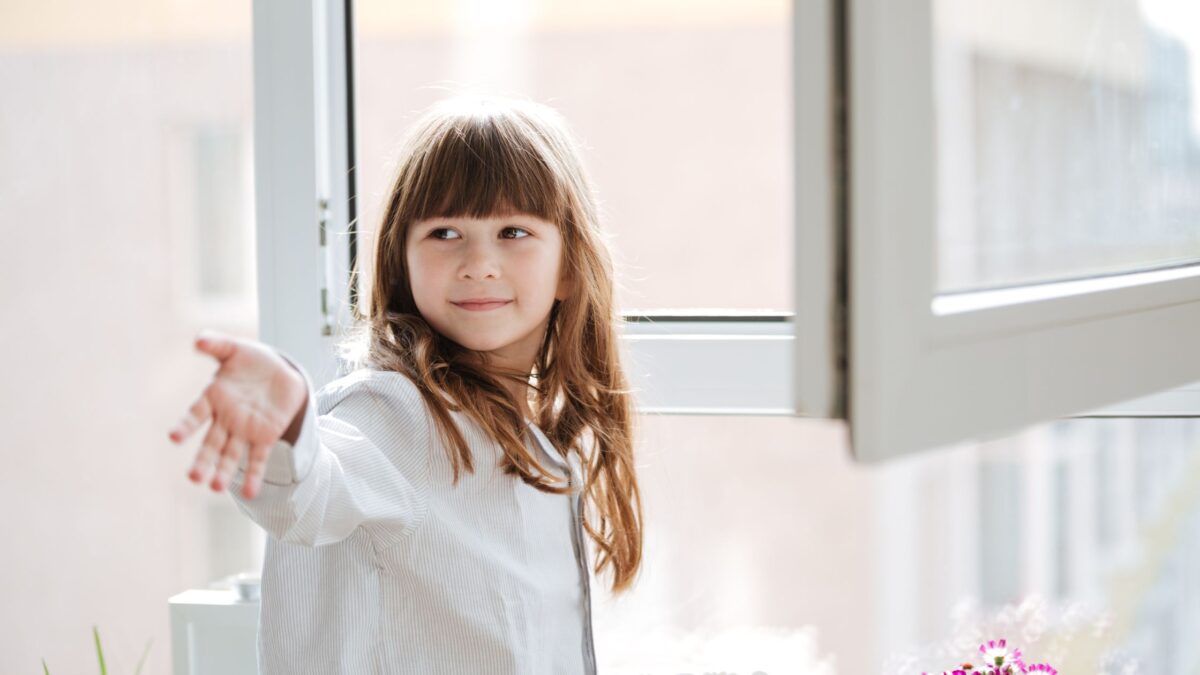It turns out that writing about the grief of grandparenting from a distance is quite difficult!
It’s one of those areas that is often ‘touched on’, but not written about in a meaningful way.
And while I’ve been promising to blog about grief for a long time now, I have so much to share, that each time I start, I end up writing what feels like an academic thesis on the topic!
So instead of putting it aside again, I’m going to share a few key points and promise to continue writing about it in future.
Grandparenting from a Distance can be Emotionally Complex
When I first started The Long Distance Grandparent, I woefully underestimated the level of grief that can be experienced as a long distance grandparent.
As the parent, I absolutely experience feelings of grief and sadness about living at a distance from family. I miss everyone all the time.
But things are in my control, and there’s a lot I do to make sure my children are connected to their grandparents.
In my heart, despite the distance, I know we have enabled an environment where my children have meaningful relationships with their grandparents.
But as a grandparent, you are often at the mercy of the parents, especially when your grandchildren are younger. You need them to value the relationship.
To this end, it’s why I believe it’s so important to be intentional about your grandparenting – and this often means finding ways to cope with the grief and sadness on your own, so you can show up for your children and grandchildren in meaningful and positive ways.
Let’s start by unpacking GRANDgrief a bit.
I want you to know you are not alone in feeling this way.
At the very first meeting of The LDG Society and most welcome calls since, tears have been shed.
During these calls, I always reassure grandparents that they are not the first, and will not be the last, to be overcome with emotion, when talking about their long distance grandchildren to a group of other grandparents who really get it.
The thing about the emotions of grandparenting from a distance, is that they can ebb and flow – and can catch us off guard.
For instance, the grief feels large and overwhelming when you first become a long distance grandparent or when you realize you are not feeling as close as you once did. Or there are times you can be filled with joy, talking to a friend about a wonderful visit with your grandchildren – and then overcome with a lump in your throat and misty eyes – out of nowhere!
It’s common to have emotional flare-ups after an in-person visit. I call this the GRANDslump – when you’ve had this amazing time together and return to an empty and quiet house – and the realization that although you are grateful for modern technology, the best technology would be something that could beam you there to read another bedtime story or attend their first theatre performance.
But what exactly is GRAND grief for long distance grandparents?
I don’t have an exact definition – no one does. But this ‘feeling’ is often described by other grandparents as follows:
- Feeling stuck in grieving the loss of the relationship you thought you would have versus the one you are experiencing.
- Feeling the loss of actual time to connect because time is experienced differently as we get older.
- Fluctuating intensity. Some days, it’s a dull ache, other days your heart is breaking to be with them.
- Feeling that you are missing out.
- Feeling irrelevant – you live so far away it’s hard to feel relevant in their day to day lives.
- Feeling hopeless.
- Feeling worried that you won’t be able to know them and they won’t know you.
- Feeling defeated when you make big efforts and get little back in return.
Do any of these reflect how you are feeling?
In the membership, we work on something called Mind the GAP (Grief, Acceptance and Perseverance). It’s about finding strategies to cope with the grief and coming to a level of acceptance about what is possible.
Then, importantly, to persevere, try new things and not give up.
Long distance relationships require extra time and effort to nurture. It will take a big dose of creativity and willingness to figure out just how to do it.
One grandparent described it like this:
Long distance grandparenting requires a lot of creative persistence, a lot of forgiveness and a boatload of selflessness. Sounds just like parenting, doesn’t it? So I guess it’s true parenting never ends. The early years are good practice for the later ones.
What can you do about GRAND grief?
Be gentle with yourself.
Self-compassion is important and the research in this area has exploded in the last few years.
How can we be as compassionate to ourselves as we would be to someone else?
Kristin Neff, Associate Professor at the University of Texas, is an expert researcher in self-compassion. She describes it as acting the same way towards yourself when you are having a difficult time, as you would act towards others experiencing a difficult time.
This might mean noticing you are suffering and not ignoring it – and offering yourself kindness, not judgement.
Don’t minimize your pain or think, I’m overreacting. You are grieving and you have every right to grieve the loss of a relationship you thought would look really different than it does right now.
It’s important to not ‘put this grief’ onto your adult children and grandchildren.
Because even if parents don’t explicitly say it, they are likely experiencing guilt already.
There are some grandparents who seek out therapy or counselling to cope with the deep sadness they are feeling. They don’t want to be negative to their own children or grandchildren, so they take extra steps to work through it and come to a place of acceptance.
The thing about grief is that it doesn’t necessarily become smaller – it just becomes different.
Grow around your grief
In the grief literature, there is a concept that I think is useful for long distance grandparents. It’s called growing around your grief.
People tend to believe that grief shrinks over time, when what really happens is that people grow around their grief.
This was first described by Dr. Lois Tonkin in 1996 and has since been developed and used in grief support in a variety of ways. You can read more about it here (be sure to scroll down to the figure with 3 mason jars because that one really captures the concept best).
One grandparent I worked with described feeling stuck in her grief:
I felt stuck in a persistent sense of loss of the dream of being near our grandkids. Other grandparenting groups only reminded me of all the things I couldn’t do with our grandkids from a distance. The LDG Society has been a lifeline to me.
I believe what this grandparent did – and continues to do – is grow around her grief.
Once she saw the possibilities of connecting from a distance, things changed.
Does it always feel perfect? Of course not.
Grandparenting from a distance is a journey, and with any journey there are bright spots and tough moments.
But knowing that you will grow around your grief might offer a way to be hopeful about it.
Speaking of hope, how exactly can you cope with hope?
Dr. Carla Dahl, a long distance grandparent herself and expert in grief and loss came to speak to my members about grief experienced as long distance grandparents. She shared the following about hope as a strategy when asked about how to cope with the feelings of sadness and loss.
Okay, well first, she talked about self-compassion but we’ve already covered that!
Next, she said:
How might you imagine something new? And I’m not talking about pretending. I’m not talking about happy talking yourself. I’m talking about thinking of, can you hold this paradox that your grandchild is both with you and not with you. They’re physically absent, psychologically present. How do you imagine connection? This is what Kerry’s work is all about. How can you imagine a connection? How do you figure out how to live into a relationship that is at a distance?
I loved this answer – especially the part about not happy talking yourself!
And then, figuring out how to live into the relationship.
I hear a lot about hope from grandparents – and how the ideas I share have resulted in hope. Often after long periods of feeling stuck in grief.
Sometimes it’s because a grandparent finally feels understood or has a place to share and to actually feel sad about something that is deeply sad!
But it’s also about eventually being able to move into a place of action – planning, preparing and being intentional about grandparenting from a distance.
Getting into action means re-imagining what this can look like and be both a powerful antidote to the sadness – and help you see the possibilities.
Because, barring a full estrangement, you can have a meaningful relationship with your grandchildren. You can mean something to one another. And you can be an important part of their lives.
I know from both professional and personal experience, the deep fragility of family and the feeling of walking on eggshells.
And so the truth is, the relationship might not be what you envisioned or even what you want it to be – but if your ultimate purpose as a grandparent is to make sure your grandchild feels loved, encouraged, feels a sense of belonging and for them to know that when the chips are down, you are in their corner, here’s the good news:
You can do all these things from a distance.
Your love travels as far as it needs to – and your grandchildren need it to travel into their hearts and minds. And more practically speaking, into their mailboxes, inbox or cell phone and into the time you spend together – whether virtual or in-person.
It’s not easy. It can feel like you are throwing spaghetti at the wall, but when it sticks, it’s going to be worth it for you – and ultimately your grandchildren.
If you have other ways you cope with the grief and sadness, let me know and I will include it in the next blog I write about this topic!
******** Special Announcement *********
Kerry Byrne, PhD, Founder of The Long Distance Grandparent is teaching the first ever course about long distance grandparenting.
Based on her 20 plus years of experience as a researcher in the area of aging and families – and her extensive practical work with long distance grandparents, Kerry is sharing research backed ways to nurture strong and meaningful relationships – no matter the age of your grandchildren.
You can learn more about the course here but if you have any questions about whether it’s the right fit for you, feel free to email Kerry: [email protected]




